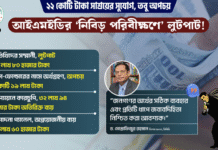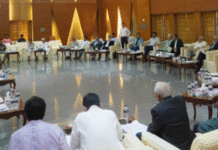Gigauri said they are working very closely with the government of Bangladesh, and are redoubling their efforts and looking at not only the whole of government but also the whole of society.
“As the Bangladesh UN Network on Migration (BDUNNM), we are also bringing together civil society and UN agencies to do our utmost to assist these migrants in need,” he said.
The Covid-19 situation has further aggravated problems, and migrants have become even more vulnerable as some have lost their jobs.
Some are more desperate, looking for new jobs and new opportunities to feed their families.
“Trafficking affects everyone. It affects people on an individual level, on a family level, and the level of society. And it’s our job to do something about it,” said the IOM mission chief in Bangladesh.
This year’s theme of World Day Against Trafficking in Persons is “Listening to the Victims”.
“We must listen to the people who have been affected so that we can assist them better. We must listen to the survivors of trafficking to hear about their experiences, their stories, and not only learn from them but use that knowledge to improve our interventions and our response to stop trafficking,” he said.
“So please join me, and let’s come together to battle this heinous crime so that we can eradicate human trafficking in Bangladesh and beyond,” he added.










